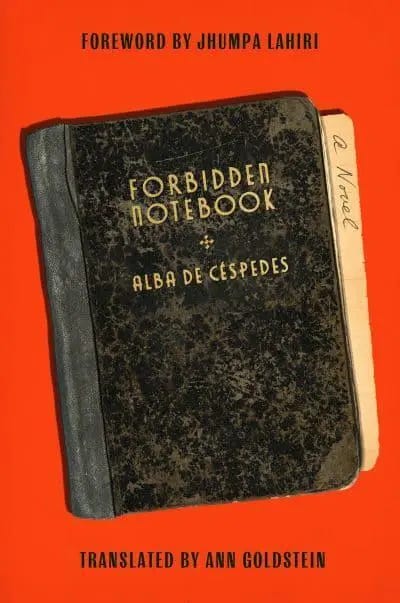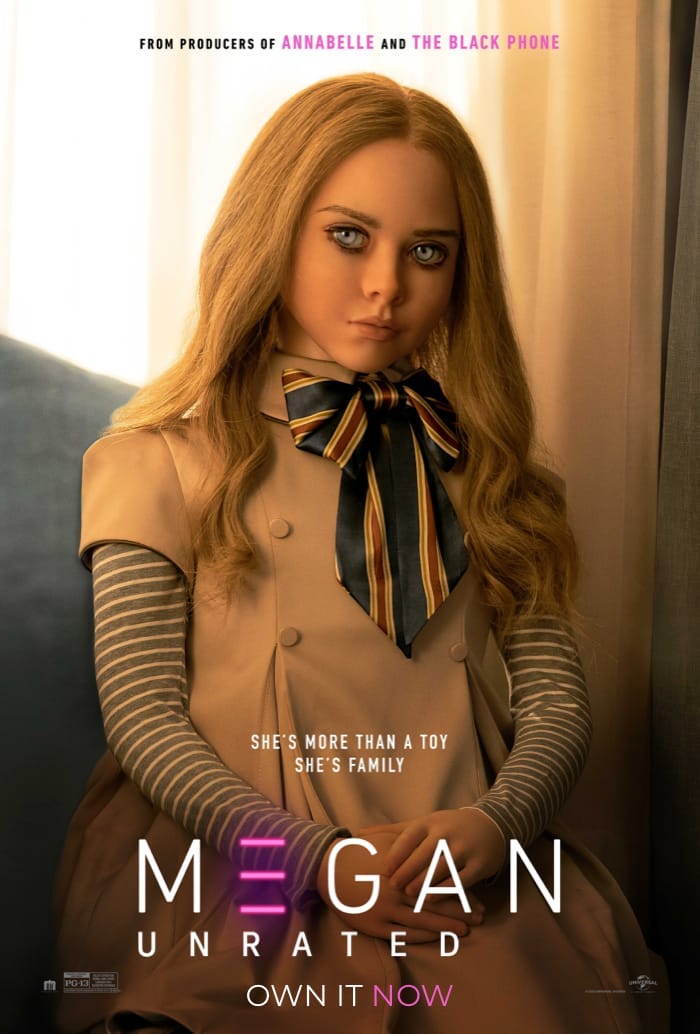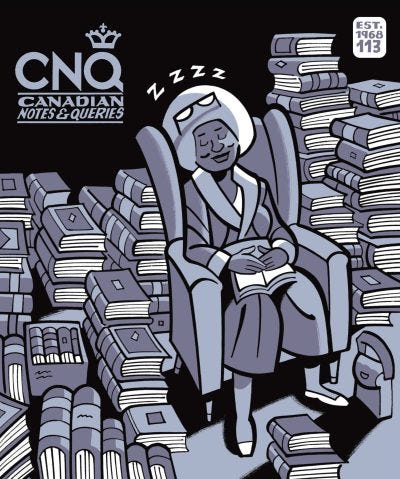Two or three things that are more alike than they seem
...and other June bits, bobs and reviews for the busy people
You know when you read and watch a few things in a row that end up being, in different ways, about the same thing?
Forbidden Notebook by the Italian writer Alba De Cespedes was published in 1952, way before any sign of the second wave feminism on the horizon, though De Cespedes must have read de Beauvoir’s The Second Sex: the novel is of the era in which married women of the western world are beginning to try out freedom for size, wondering about societal norms, work, income, privacy, autonomy, for mothers in particular. A wife and a mother of two young adults who, as is customary in Rome of the 1950s, still live with their parents, Valeria leads a life entirely shaped around the needs of her husband and children. Unlike her girlfriends, she works outside the home too, her family having fallen on hard times and requiring two incomes. For her own mother and most of her social circle, this is unseemly and undignified – but for her daughter, who is nearing 20, dating a married man, and plans to go to university, her utter lack of freedom and autonomy is what is unseemly and undignified. When she hears from her daughter that she “wouldn’t want to live a life like yours”, Valeria feels compelled to defend it and its traditional values, but when alone with her secret notebook, her certainties begin to fray. Could she have a more capacious life, could her husband - who has been calling her mamma, as in the mother of the house, for the last few years? Just when you think you know where the novel is going, de Cespedes has a few slyly set up developments for you. This is a novel in the honourable tradition of the mid-twentieth century (and earlier) novels in which a person tries to break free, but is gently engulfed back by their loved ones and the pressing social obligations, sometimes even embracing the security of their entrapment. Iris Murdoch’s The Sandcastle is structured similarly, as is Sartre’s No Exit, and Patricia Highsmith’s Edith’s Diary.
Turns out the horror sci fi M3GAN (written by Akela Cooper) is about motherhood as well, in its own odd and conflicted way - or to be more precise, about mothering. Gemma (Allison Williams) is a millennial roboticist who is more interested in propagating and perfecting artificial intelligence than marriage or parenting. We know she is casually dating (her Alexa-like personal assistant greets her in one scene with her new dating app notifications) but her priority is creating what the sci fi conversant would call androids, robots created for companionship to children and adults. Other key female characters in the movie are pre- or past reproductive age, her next door neighbour (a disheveled spinster with a dog companion) and a 10-year-old niece she inherits after her sister and BIL die in a car accident. Gemma is clearly uneasy about the whole parenting and guardianship thing, so in order to redress her absence, and also to recklessly use a human for her robotics development purposes, she gives her niece a M3gan prototype, a robot in child’s size programmed to “individualize” through interaction with its human and adjust itself to the child’s needs – and this is in more or les how the existing AI perfects itself, by going through the gajillion existing records of human language, and by being corrected by human intervention. Things obvi get complicated as M3gan takes over the mothering function in an animalistic way (as it - she? - is certain no one else will) and we are in the HAL 9000 and Blade Runner territory: will AI sophisticated enough love humans better than they know how to love each other? A child therapist hired to help the girl cope with bereavement and Gemma’s colleague remind Gemma more than once that M3gan was not meant to replace parenting, but it’s too late pretty fast. In its final quarter the film kind of falls apart and closes in a silly, video game-like way, but that doesn’t take away from its overall seriousness, dialectical spirit and discomfort. Is it dystopian or utopian? To its credit, I can’t tell.
Further on mothering detached from biological reproduction… a beautiful new film written and directed by Rebecca Zlotowski (as it happens, one of the few out lesbians of the French cinema, and Celine Sciamma’s soccer buddy), Other People’s Children, is currently playing at Imagine Cinemas. It’s one of those quietly emotional French films about regular people with families and jobs who start dating a new person after which complications ensue. A school teacher in her forties (Virginie Efira, extraordinary in the role, is, Wikipedia says, 46) falls for a fellow in guitar class, a divorced man roughly her age (Roschdy Zem) who co-parents a 4-year-old. All is going well – Zlotowski is great at documenting the giddiness of an early love – and as the couple get serious, Rachel is introduced to the 4 1/2 Leila. After the first few polite meetups, things get bumpy - “Why is Rachel always here?” asks Leila one night out loud, and after a short weekend away with her dad and Rachel she spends the entire train ride back by the door demanding her mommy right now. But chug along one must, and gradually the two develop a deep bond. Her mother is, to complicate things, a lovely person (Chiara Mastroianni), and the ties she still has with her ex run deep. Very gradually and subtly, we learn just how deep, as their close mutual friend faces terminal illness. Some of Rachel’s own background is revealed – her mother died in an accident when Rachel was 9; in her first serious relationship, Rachel did not want to become a mother, but now that it’s almost too late, she has found someone with whom she emphatically does. All the while, as a high school teacher to a number of difficult kids, Rachel assumes the parenting-mentoring-guardian role easily, with no hesitation. As events follow one another, Ali’s prioritizing of his existing family obligations and especially his child’s needs become more obvious. I won’t spoil too much, but let’s say that Other People’s Children is a film for adults. Don’t miss this understated gem.
Bits and bobs
Who’s everyone voting for in Toronto’s mayoral election? I am looking for a candidate who will combine Matlow’s program on bikes, housing and city services, and Furey’s approach to ‘safe supply’, drug consumption in public and encampments (I live where you’re surrounded by all those). 100-plus candidates and still no one to vote for. Why do candidates shape the programs as if they’re cable packages? “If you believe this, then you must believe this too”? Bizarre. I have a quite a bit of time for Furey because I have actually spoken with him at length and he had some nice things to say about my 2022 book (here I am on his podcast, while he worked at the National Post) but I commute on my bike daily. Bike lanes are not a silly frill for leisurely outings, they are a lifeline for a lot of people. They save me scores of money and time, and they mean one fewer body on the TTC and one fewer car Ubering around the city. The “no increase in property taxes” thing in his program? When Toronto already has the lowest property tax in the GTA? Which money will fund those extra police officers that he plans to hire? Mind, the progressives don’t have a stellar record on property taxes or bike lanes either: the last ‘progressive’ administration, David Miller’s, did exactly nothing to increase bike lanes in Toronto. It just wasn’t his issue. So it’s quite possible that some of the top five candidates campaign from an ideological cable package, but intend to or will have to run things, as it’s the City Hall, not a Parliament majority, through compromise and trading. Which still does not help me decide who to vote for. Though the question is probably academic only at this point: sadly, Olivia Chow is highly likely to get in. Oh god. The platitudes, already at a high in municipal politics, will go through the roof.
Further in self promotion…
Remember book reviews? I will have one of those in the new issue of the Canadian Notes and Queries. This is one off the bucket list for me (the CNQ is legendary), there was no way I wasn’t gonna mention it. Seth does his thing with the artwork.





